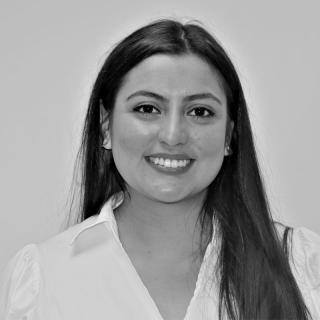
How breast cancer disproportionately affects Latinas
October is Breast Cancer Awareness Month, and it’s important to know about how to check yourself.
Cancer is the leading cause of death among Latinas according to the Centers for Disease Control and Prevention (CDC). Of all cancer, none is more deadly than breast cancer.. It is a topic that is not the easiest to talk about, but extremely important, and one that could alter your life if not taken seriously.
There are studies upon studies that reflect the disproportionate rate Latinas are affected by breast cancer. One from 2008 by the University of Illinois, demonstrated that Latinas are more susceptible to being diagnosed with breast cancer earlier than non-Latinas, and are also more combative with treatment. The higher mortality rate for Latinas with breast cancer is due to the lack of accessibility to screenings in a timely manner, which happens because of factors like lack of health insurance.
However, it is easy to do a self check up.
What is suggested is to lie on your back three to-five days after your menstrual cycle and feel around for any lumps on your breasts.
For further advice, AL DÍA spoke with Dr. Violet M. McIntosh, a breast surgeon at Englewood Hospital in Englewood, New Jersey. McIntosh said women around should start performing self examinations around the age of 18.
“The purpose of this is to figure out your normal early on so if something changes, you’ll be able to pick it up quickly,” she said.
McIntosh added that mammograms depend on family history, and if there is a presence of breast cancer in the family, women should start getting screened 10 years earlier than normal.
Otherwise, women should start at 40 years old.
When asked about cases in younger women, McIntosh said there has definitely been a rise in developing not only breast cancer, but other types in their 30s and 40s.
RELATED CONTENT
Self-checking is important because no one is safe from Breast cancer, not even celebrities.
In 2007, Alejandra Guzman, the famed Mexican rocker, was diagnosed with breast cancer.. In an interview with AARP, she stressed the same message of checking your own body.
“I always tell women to touch themselves. It’s healthy to grab your breasts every once in a while. As women, they teach us not to touch ourselves, to respect our bodies, and this results in us not being in touch with ourselves, not listening to our bodies,” said Guzman.
A nonprofit organization creating awareness about breast cancer and self-checking, particularly for the Latina community is TeTocaTocarte. Created by music executive, Clara Pablo, the organization covers all topics from facts about breast cancer, self checking, getting mammograms, and most importantly, letting women know they’re not alone in what may seem like the darkest moment of their life.
As a music exec, Pablo has worked with Ricky Martin, Shakira, Carlos Vives, Maluma and more.
At 36 years old in 2016, she felt a lump in her right breast, and was diagnosed with stage 1 cancer. She came out about her diagnosis on the first day of Breast Cancer Awareness month with an Instagram post, and received overwhelming support and encouragement. The hashtag #TeTocaTocarte was a way to build a community of support, and has flourished into the rising nonprofit it is today.
In light of everything, take care of yourself, women, and please, #TeTocaTocarte.











LEAVE A COMMENT: